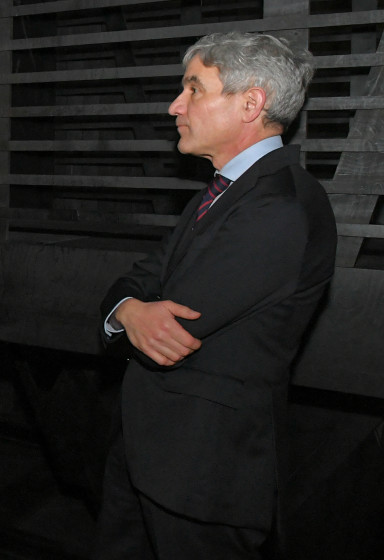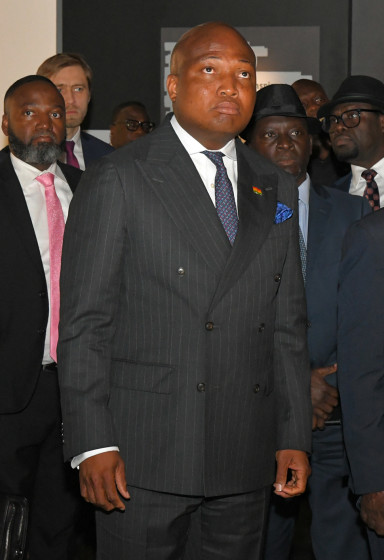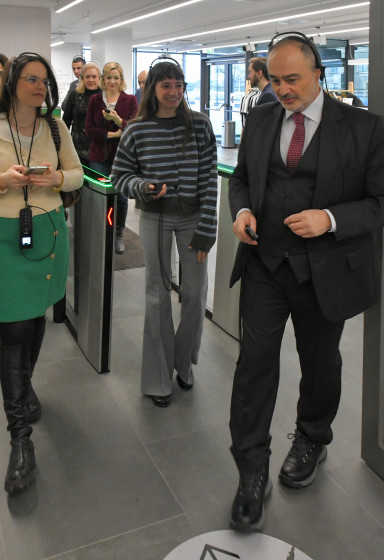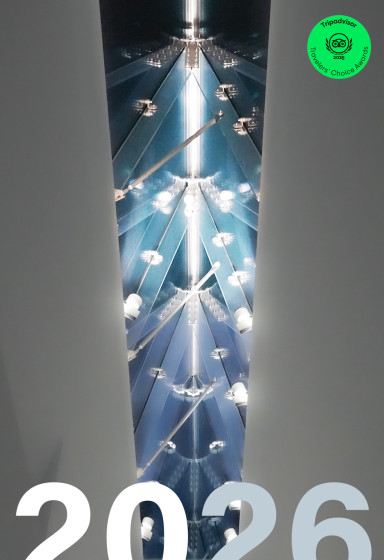Donate to Museum
Each donation helps to ensure the Museum's activities, allowing it to function and provide information for people from all over the world.
The Museum is grateful to each donor and invites everyone to contribute.
A look back at Dr. Hist Argitas Daudze's lecture on Swedish professor Birger Nerman
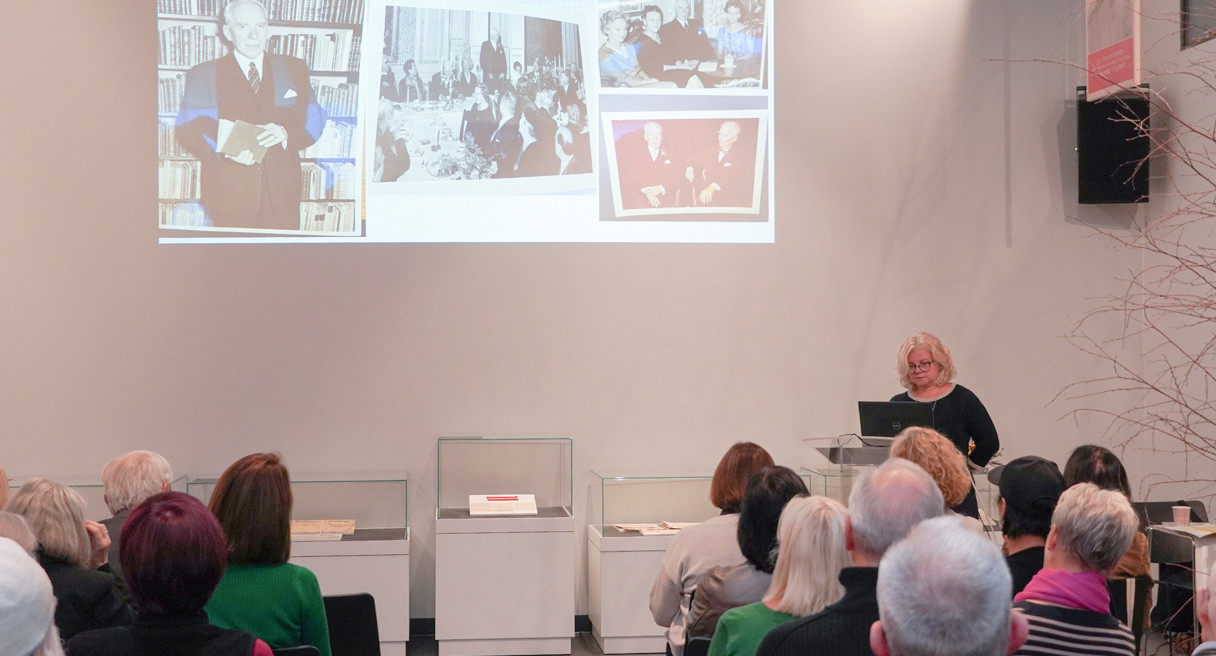
Historian Argita Daudze’s (Dr. Hist. degree from the University of Latvia in 2010) historical research is focused on the relations between Latvia and Sweden during the Cold War. Thanks to a scholarship from the Liene Neuland Foundation, administered by Stockholm University, she worked at the Swedish State Archives and at the Royal Library she researched the work of the prominent Swedish archaeologist Professor Birger Nerman (1888-1971) and The Baltic Committee (founded in 1943) in support of the Baltic exiles in Sweden.
On the afternoon of 3 October, Dr. A. Daudze presented the results of her research at the Occupation Museum of Latvia. During the one and a half hour presentation, one could get acquainted with the personality of the great Baltic friend Professor Birger Nerman, the strength of his inexhaustible energy and conviction in defending the right of the Baltic exiles to regain their countries. The professor and his like-minded colleagues in the Swedish intellectual and opposition political circles motivated the Swedish public to support the Balts, whose experience of the anti-human nature of the totalitarian communism of the USSR was important in the process of strengthening critical attitudes towards communist propaganda. In his presentation of the study, Daudze reflected on the joint work of Birger Nerman, the Baltic Committee and the Baltic exiles in reporting on the real conditions in the occupied Baltic States, both in Sweden and internationally. Their work demonstrated the primacy of moral and ethical considerations over political calculations during the Cold War.
In Latvia, less was known about the Swedish public's solidarity with the Balts. The Swedish government's position, which deliberately ignored the de jure existence of the Baltic States, was not shared by members of the Swedish intellectual elite and some political parties. The most active of them was Professor Birger Nerman.
Here is a look at Birger Nerman's publications and the thanks he received from Baltic exiles.
The 1943 publications Do they have the right to live? Before the Hour of the Fate of the Baltic Peoples (Ha de rätt att leva. Inför de baltiska folkensödestimma. - Baltiska Komitten 1943) aimed to show that Estonians, Latvians and Lithuanians are ancient cultural people in terms of language and living in their own defined territory. These peoples were able to free themselves from centuries of oppression and dispossession administratively, socially, economically and culturally and have the right to live as independent people.
B. Nerman in an article in Svenska Dagbladet 29.7.1947. refutes the Soviet propaganda against the Baltic refugees.
The attacks on the Balts by the Swedes in several press outlets were unfounded. They were not Nazis. B. Nerman asks what inspired such publications.
He describes the Baltic community in Sweden as very peaceful, although many have suffered and lost their homes and livelihoods and status in society (working the most basic jobs, for instance, dishwashers).
He speaks positively about the Baltic way of life; the importance of songs in everyday life. B. Nerman stresses that employers speak very highly of the Balts.
He stressed that refugees' interest in their homeland is not espionage and crime.In the 1956 publication The Baltic must live! (Baltikum ska leva), professor described the attitude of the Swedish society to the extradition of Baltic legionaries : "It is safe to say that the sadness and bitterness, the indignation and contempt which the extradition aroused in an overwhelming part of the Swedish people will never dissipate... For the majority of Swedes, the extradition means a violation of their sense of justice, a stain on the honour of Sweden, which for our people is the most shameful event that has taken place in our recent history".
In the catalogue of the 1960 travelling exhibition That's Why We're Running Away organised by the Baltic Committee and the Association of Captive European Nations (ACEN), Professor B. Nerman wrote:
"People forget quickly. Especially when they themselves are not affected. We in Sweden, like others in the free world, have not been touched by the evils of Nazism and Communism. Fortunately, Nazism has been eliminated. But Communism continues behind the Iron Curtain. Is the free world not beginning to forget the wrongs it has committed? This forgetting is facilitated by the favourable publicity given to Khrushchev during his visits to Western countries. ...But totalitarian regimes must not be forgotten...
...refugees have found refuge in Sweden, while their relatives have been deported to Siberian slave camps... Our refugees cannot forget this, and we, their friends, must keep their cause alive. We Swedes should be aware of the contrast between a democratic society and the captivity and oppression that prevails behind the Iron Curtain."
The exhibition also demonstrates how refugees are integrating into their new countries of residence. The exiles, by preserving their national culture, have an invaluable role to play in the future when they regain their independence...
May the exhibition be a strong reminder to us Swedes not to relax our vigilance against communism! And may it be a promise to our refugee friends of the national freedom that will come in the end!"
Many Baltic exiles, on behalf of themselves and the organisations they represent, warmly thanked B. Nerman for his support. This is reflected in one of the letters addressed to him. In 1947, for example, former Baltic envoys thanked him for his tireless work on behalf of the Baltic cause. They stressed that the professor deserved the admiration and deep affection of the Baltics. He will always be regarded as the greatest friend of the Balts in Sweden and will never be forgotten by the Balts. The envoys congratulate him on the support actions, concerts and letters he encouraged to the leaders of the major powers and to the Pope.
